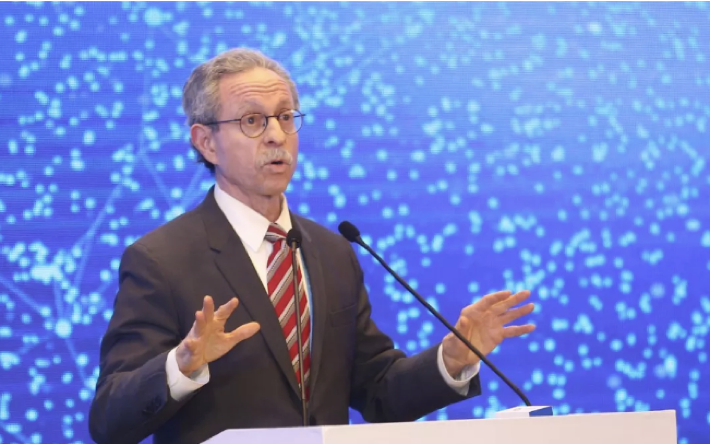
On July 31, 2019, PBS SoCal, the PBS flagship public television station in Southern California in the United States, premiered my documentary on China’s historic poverty alleviation campaign: “Voices from the Frontline: China’s War on Poverty” (Adam Zhu, executive producer; Peter Getzels, director), the inside story of China’s race to eradicate all absolute poverty by 2020, the first in-depth documentary about China’s poverty alleviation campaign to be broadcast abroad. In May 2020 it was broadcast again in the U.S.
Working with the CPC Organization Department, the State Council Leading Group Office of Poverty Alleviation and Development, and with CGTN, our production partner, our international film crew had unprecedented access to travel across China, embedded in the country’s massive poverty alleviation programs. We met poor villagers, local officials, special monitors — those being lifted out of poverty, those assigned to do the lifting, and those recruited to do the checking.
For example, the last step in deciding who is poor and who is not — and who can be said to have been lifted out of poverty — is what is called the “democratic appraisal meeting”. It is where the villagers themselves get a chance to vote. I attended one such meeting in a remote village of Wanling Township in central Hainan’s Qiongzhong Li and Miao Autonomous County, where villagers voted into poverty status one young man whose father has cancer (and thus benefitted from favorable policies) and cheered when another man was raised out of poverty. The villagers were not shy in voicing their opinions.
As much as I thought I knew China, I was startled to discover that every poor family in China has its own file, each with its “targeted” plan to lift each above the line of absolute poverty — that’s millions of poor families with customized plans, each checked monthly, recorded on paper, and digitized for central compilation and analysis. That’s millions of households!
Equally startling, young Party cadres are dispatched to impoverished villages to manage poverty alleviation for two years. One might think that they would be unhappy, because they were away from their families, living under difficult conditions, their career path in local government held up. But not – they were happy and excited, knowing they were contributing to China’s national commitment to eradicate all extreme poverty and that their grassroot work would help their future careers.
I was especially moved when I spent days with young Party cadres who had been assigned to very poor, isolated villages and saw how they visited poor families regularly on their motorcycles (I rode with them).
Although poverty is being fought the world over, there is nothing anywhere like China’s relocation of whole villages on a massive, national scale — moving people from remote rural areas to cities, providing homes and jobs, giving them a real chance at a better life,
But what might sound good in theory might not work well in practice, which is why I wanted to see how it actually works on the ground. I travelled to Guizhou Province, Huishui County, where the relocation of whole villages was underway. From remote mountain hamlets, villagers were being moved to Mingtian community, 70 kilometers away.
I joined Yang Wei, the First Party Secretary of Mingtian community, as she and the local Communist Party committee made their rounds, visiting those who had recently moved there.
I learned that housing is free for villagers who relocate here. A family of four receives up to 80 square meters of living space, 20 per person. The government also covers all basic amenities, including sofas, beds, kitchenware, and TVs.
But how can these rural men, who were farmers, learn new, non-farming jobs? I joined a cooking class and got to know one of the former farmers who was learning to be a chef. I spent time with three generations of his family and several of his friends. All were appreciative of their new lives, but one man thought the local government made promises that they had not kept (about income) — and he was not afraid to voice his complaint to me and everyone else in the room.
Yet, not everyone from the villages agrees to move to the new communities. After all, the farms have been their lives for generations. I travelled to Daijing village to meet the Party secretary. His job was to convince the few remaining villagers to relocate. It is policy that neither he nor the government can force people to relocate.
But even with success in industry (micro-business), education, and relocation, in such a massive country, with such large flows of funds and with officials’ careers on the line, there is risk of abuse and manipulation. While cheating and stealing in poverty alleviation are not unexpected, they are disconcerting.
One of the aspects of the poverty alleviation that impressed me the most was the system put in place to mitigate fraud, called “third-party evaluation”.
For example, our documentary focused on a team of professors and students from Southwest University in the Chongqing municipality. It was as if they were on a military mission. Authorized and trained by the central government, they traveled more than 300 kilometers from their university deep into rural Sichuan Province. The governing idea is that since the third-party evaluators would be coming from completely different regions, they would not likely know any of the officials whom they would be evaluating and thus not be swayed by personal relationships.
Their task was to evaluate both the successes and the challenges of the poverty alleviation process – and to assess how officials were doing their jobs.
To ensure that the local officials do not prepare for inspection visits, the evaluation team decides where they will go only at the last minute, often the same morning of the inspection.
The mobilization of students is indeed like a military operation. Hundreds fan out across the countryside to check if the anti-poverty work is being done properly and assessed honestly.
After watching our film, one not unsophisticated American said, “I wasn’t expecting a positive outcome. I guess there are so many negative reports about China that we assume they couldn’t care less about their underclass. My opinion was changed.”
Between 2015 and 2019, all across China, almost three million Party officials were working on the frontlines of rural poverty alleviation (that’s cumulative — some 750,000 at any given time). I was impressed by the rigid rules designed to optimize poverty alleviation outcomes. No official could be promoted until each met specific, numeric, poverty-alleviation objectives. Officials know that their careers prosper or falter based on their poverty-alleviation results. I could tell that cadres and officials knew that the Party and the government meant business with the poverty alleviation campaign.
In framing my poverty alleviation documentary, I insisted that the first and last statements be about and by President Xi Jinping. My documentary begins by stating, “To President Xi Jinping, ending poverty is his most important task” and it ends by quoting President Xi, “I have spent more energy on poverty alleviation than on anything else.”
Although other developing countries have different conditions and cultures, China rightly believes its poverty alleviation experience can help. Among developing countries, only China has achieved rapid development and large-scale poverty reduction, with the poor sharing the fruits of reform and opening up over the four decades and with the intractably poor finally brought out of poverty over the last seven years or so. For good reason, China’s poverty alleviation accomplishments have been called a developmental miracle.
When China’s 2020 poverty alleviation mission is completed, China will have achieved the poverty reduction goal of the United Nations 2030 Agenda for Sustainable Development 10 years ahead of schedule. No other country has brought so many people out of poverty, and did so in such a short period of time. China asserts that these historic achievements validate the country’s socialist political system, which means the continuing leadership of the Communist Party.
What can the world learn from China’s success in poverty alleviation? Certainly, China hopes to share its poverty-reduction experience — all aspects of it — with the world community, especially the poorest nations.
China’s principles of poverty alleviation are clear: “targeted” poverty alleviation employs specific measures to fit specific circumstances and needs, and a clear organizational structure to implement those measures, monitor them, and check them.
Nonetheless, to me, what is even clearer is this. For a country to make a success of poverty alleviation, the number one criterion is that the leadership of the country must make an absolute and resolute commitment to accomplish it. Again, General Secretary Xi’ s unambiguous assertion: “I have spent more energy on poverty alleviation than on anything else.” This sends a powerful message to officials at all levels, indeed to the entire country.
So, this is the big lesson to learn: the senior leader of the country needs to make the overall mission of poverty alleviation a high priority for the nation. Nothing less will do. One individual needs to be empowered, by senior leadership, with the authority and resources to implement the national program.
We think of poverty programs in terms of criteria, measures, mechanisms and procedures. And indeed, China has pioneered micro-businesses, education, relocating whole villages, eco-compensation, and social security. These can be adapted to other countries, as can the Party-led organizational system of implementing poverty alleviation through the “five levels” of local government (provincial, municipal, county, township, village).
Bottomline, though, what all countries should recognize in the fight against poverty is the critical importance of motivating officials to make poverty alleviation a priority in the hierarchy of values in their work. This can come only from the top down. This is a big lesson that China offers to the world.

The author is chairman of the Kuhn Foundation


